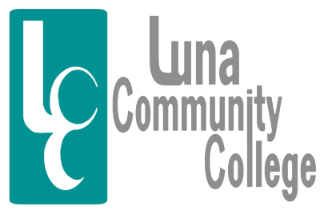Academic Assessment
Academic Assessment
At Luna Community College (LCC), assessment is an ongoing, collegewide practice used to understand how effectively students are learning and how well programs and services are meeting their goals. It reflects the College’s commitment to quality education, student success, and continuous improvement.
Assessment is a shared responsibility involving faculty, academic directors, and staff who contribute to improving learning experiences and institutional effectiveness. The LCC Assessment Committee (LCCAC) leads campus-wide assessment practices. By examining course, program, general education, and co-curricular outcomes, LCC demonstrates accountability to its community and accrediting bodies while advancing its mission to provide accessible, high-quality education that prepares students for success in their careers, continued education, and civic life.
For more information, please contact Sierra Fernandez, Director of Assessment, at sfernandez@luna.edu or call 505-454-2573.
Student Learning Assessment Plan
Luna Community College’s Student Learning Assessment Plan is a living document that serves as the framework for assessment across courses, programs, general education, and co-curricular areas. At LCC, assessment is the ongoing process of gathering and using evidence to understand how well students are achieving outcomes and how effectively programs and services support learning. The plan includes timelines, responsibilities, and templates to promote consistency, while also providing flexibility for continuous improvement. It reflects LCC’s commitment to accountability, educational quality, and student success.
LCC Student Learning Assessment Plan
General Education Assessment Plan
New Mexico updated its model of general education to focus on the essential skills that are needed by today’s college graduates to be successful as they pursue advanced degrees and/or careers.
The defining characteristic of a New Mexico general education course is its focus on essential skills: communication, quantitative reasoning, critical thinking, information and digital literacy, and personal and social responsibility.
Luna Community College has a General Education Assessment Subcommittee that evaluates courses each year based on the general education assessment schedule as outlined in the General Education Assessment Plan.
LCC General Education Assessment Plan 2025-2028
LCC General Education Assessment Report AY 2024-2025
LCC General Education Assessment Report AY 2023-2024
Course Assessment
Course-level assessment measures student learning within individual courses. It evaluates how well students achieve the outcomes listed in the syllabus and provides faculty with a framework for analyzing student achievement in their classes to strengthen teaching methods, assignments, and instructional strategies.
CLOA Report - Fall 2024 - Spring 2025
Programmatic Review
Program-level assessment evaluates student achievement across entire degree and certificate programs. It examines how individual courses contribute to overall program outcomes and ensures that graduates demonstrate the knowledge and skills needed for employment or transfer. Program-level assessment builds on course-level results and is implemented through programmatic review, which is led by Academic Directors with faculty support. Department reviews include an evaluation of each program within the department and are published on the department’s website. Follow the links to each department’s webpage to view its review report:
Allied Health and Public Service
Career and Technical Education
Early Childhood and Teacher Education
Humanities
Nursing
School of Business
Science, Technology, Engineering, and Mathematics
Co-curricular Assessment
Co-curricular assessment evaluates structured learning experiences outside of the classroom. Activities such as student senate, athletics, tutoring, and peer mentorship are assessed to ensure they support student development and the mission of the institution. The assessment process involves identifying learning outcomes, collecting evidence of student growth, and using results to improve programming and student support. Co-curricular assessment helps connect student learning with real-world skills such as leadership, communication, and collaboration.
LCC Co-curricular Assessment Plan
